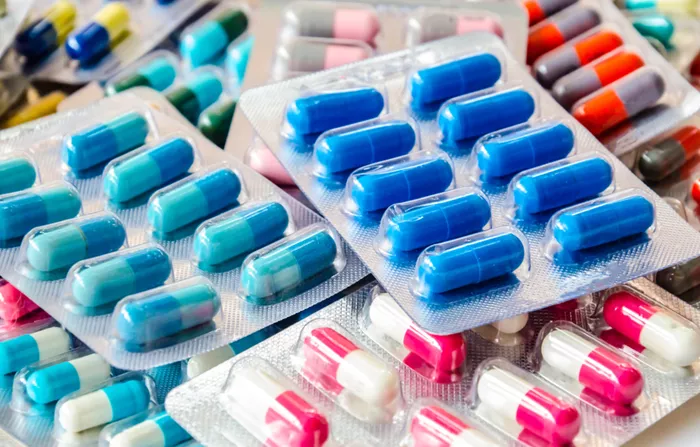President Donald Trump’s executive order imposing a 10% tariff on Chinese imports may lead to higher prices for generic drugs in the U.S. and worsen drug shortages, experts warn.
Around half of the generic drugs used in the U.S., including cancer treatments, antibiotics, and blood thinners, are produced overseas, where manufacturing is cheaper, according to Dr. Aaron Kesselheim, a professor of medicine at Harvard Medical School. He added that about 80% of the active ingredients in these drugs come from abroad.
China plays an increasingly significant role in producing these ingredients. In 2023, China had 219 pharmaceutical ingredient facilities, up from 134 in 2021, according to the United States Pharmacopeia (USP), a nonprofit focused on drug safety. India is still the largest global producer of these ingredients, with about half of the world’s facilities.
Generic drugs make up roughly 90% of all prescriptions in the U.S., according to the Association for Accessible Medicines (AAM), a trade group for generic drugmakers. Unlike brand-name drugs, generics are typically sold at low prices, close to their production cost. This means any disruption, such as tariffs, could lead to shortages and force companies to raise prices, Kesselheim explained.
“Shortages may happen quickly, but prices are likely to rise in the coming months,” he said. “Contracts between drug distributors and companies often take a few months to adjust, so price hikes may not be immediate.”
Vimala Raghavendran, vice president of informatics product development at the USP, noted that drug companies usually hold several months’ worth of inventory of active ingredients. As a result, the impact of policy changes like tariffs may not be felt right away.
John Murphy III, president of AAM, urged the Trump administration to provide an exemption for the tariffs. “From raw materials to finished products, U.S. medicines rely on a stressed global supply chain,” he said. “Generic manufacturers can’t absorb these new costs.”
The White House did not respond to requests for comment.
Rena Conti, an associate professor at Boston University’s Questrom School of Business, said there are safeguards in place that could help prevent immediate price hikes. These include state laws against price gouging and a tax on drugmakers who raise prices faster than inflation.
However, Conti expressed concern that hospitals and pharmacies might begin stockpiling drugs to avoid future price increases. This could create supply issues and increase disparities in drug access across the U.S. “Better-funded hospitals can buy more, but smaller pharmacies and rural hospitals might struggle to get what they need,” she said.
Arthur Caplan, head of medical ethics at NYU Langone Medical Center, noted that the tariffs are unlikely to spur U.S. drug production. “Generic drugs are not profitable enough for companies to invest in new factories,” he said.
Trump’s tariffs on Mexico and Canada, which were imposed on Saturday, could further complicate the issue. Although tariffs on Mexico were delayed following an agreement between the two countries, Caplan believes the U.S. will face higher drug prices over time.
Read more:
- Federal Health Workers Alarmed As DEI Watch List Targets Employees
- Brain May Hold More Microplastics Than Other Organs, New Study Finds
- How Exercise Can Improve Your Sleep And Reset Your Body Clock?


